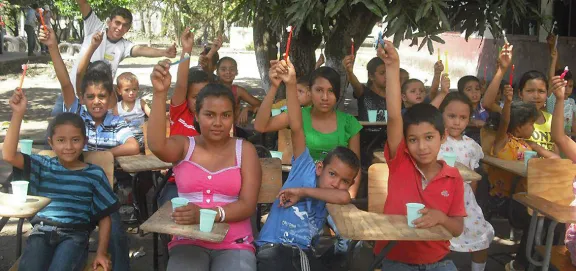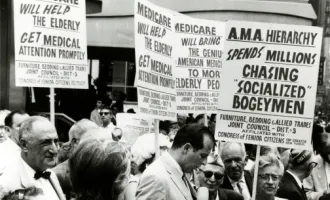
Do Healthcare Mission Trips Cause More Harm than Good?
In a world of over 7.1 billion individuals, approximately 400 million people lack access to healthcare. As interest in global health continuously grows, the number of health-oriented mission trips has skyrocketed. While the intent of mission trips is to treat a desperate need, some have argued that these efforts are rooted in “voluntourism.”
As writers who have participated or plan to participate in dental mission trips, we wanted to explore the factors and principles that separate a short-term, voluntourism-type brigade from one that has everlasting effects. So we opened the following discussion to our readers with this question:
“While healthcare students and licensed providers are often drawn to participate in mission trips, some believe that these efforts are simply ‘band-aids’ that prevent real resolution of critical health issues in communities. What kind of impact do you think mission trips have on underserved populations?”
Valerie Torricos, a second year dental student, has been participating in mission trips for the past 10 years.
She says: “Whether it is nationally or internationally, there is always something to take away from a mission trip. However, I do think that mission trips can be done poorly. Going into a country and doing a few procedures really is only a band-aid.
“For the efforts and finances to be worth it, we have to leave something that is self-sustainable. To me, that something is education.
“Each patient should receive sufficient education about the situation they are in, how they got there, and how to prevent it in the future. We also need to connect with the individuals we interact with. With their trust, the things we teach them can resonate. That is what lasts and what persists over time.”
As a first year medical student at UCSD, David Li also agrees on the importance of education as a preventative and long-lasting service.
He states: “The key to these missions is continuity and education, rather than just jumping in and taking blood pressures for a day. If the organization is able to educate the community, I think it can have a positive impact.
“However, a good number of these missions seem to be a little more than tourism trips, spending the bulk of the time on activities that really don't do much to improve the overall health of the community.”
Dr. Benjamin Chaffee, well known for his international efforts in dental public health research, has very strong words of caution.
“It is natural and laudable for dentists and dental students to want to take personal action, but some well-intended efforts can bring unexpected and potentially damaging consequences,” he said.
“Problems arise when there is misalignment between the goals of the international volunteers (e.g., personal skill building, tourism) and sound global health principles (e.g., sustainability, equal partnerships).
“Some volunteer activities are duplicative, or worse, in competition with local providers, causing damage to tenuous local health systems or encouraging reliance on outside assistance. Few volunteering excursions objectively measure the impact of their visits, and short-term ‘band-aid’ efforts often neglect underlying disease causes and leave the local community without assistance when the volunteer brigade heads home.
“Volunteering is a fundamental part of being a health professional, but more reflection and critical thinking is needed to bring about sustainable and equitable change.”
With so many of us in agreement, why do we still find issues of voluntourism and “band-aiding” with mission trips?
This column’s co-writer, Anna Nonaka, has formed her own opinions about this dilemma after learning more about this topic, and believes that the underlying cause is the gap between the volunteers’ expectations and the genuine goal of a mission trip.
“I heard about an incident on a mission trip where an inexperienced volunteer was explicitly told not to perform procedures on any patients, as there was no adequate training and no supervision from a school-qualified instructor. However, the volunteer continued.
“Some people volunteer with an expectation that, because they financially invested in the trip, they are entitled to pursue personal endeavors. This is also reinforced by the fact that some international healthcare standards and supervising doctors are less stringent. This clearly shows that, when given the opportunity, some volunteers’ personal wishes can outweigh their better ethical judgement.
“Instead of valuing all parts of the volunteer effort equally and adhering to the ethical principle of nonmaleficence, volunteers may put patients in danger in order to gain more experience. The bottom line is that we should not deliver care abroad any differently than we do in the States.”
It is important for volunteer organizations to realize that sustainable global healthcare cannot be achieved through a simple tooth extraction or limited distribution of medications. Instead, the community’s local issues, cultural background, and health inflictions must be evaluated.
This research will provide volunteers with the necessary tools to establish preventative and educational programs, form partnerships with the community, and leave behind a strong local healthcare system. If we achieve these goals, then we can truly attend to the communities’ needs and provide continuous global healthcare.
Dr. Chaffee recommends the following papers for those interested in learning more about the ethical considerations and long-term goals that should be considered prior to partaking in health-oriented mission trips.
Have a different opinion? Please send us any comments, questions, or answers by emailing anna.nonaka@ucsf.edu or engaging us through comments on our social media pages.


